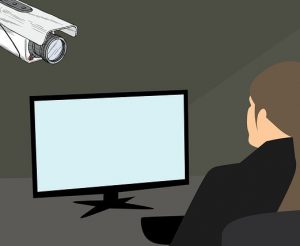
We all use the internet daily, but we also value privacy. We want to go online and have access to all that the Internet can give us and enjoy our time playing games, chatting with friends, using a betting calculator before placing bets, or whatever else we like to do, without being constantly monitored. Depending on where you are in the world, most of us have the freedom to do whatever we want online. However, not all people do.
When you live in a country which is called the People’s Republic of China, you expect the people to have more say in matters of all things. But, it is almost granted at this point that China has a very server surveillance system and lots of censorship.
People are being monitored and most western sites like Twitter, Facebook, YouTube, even, are banned through a country-wide firewall. People resort to Virtual Private Networks to get through and reach the sites they want. All of this is something we are familiar with, but the surveillance levels have gone up and the people are not happy about it. In a recent story, we have come to know that there have been more surveillance attempts of regular citizens. Here is more on that story.
Beijing, the City of Surveillance and a Lack of Privacy
It is known that China has a reputation of monitoring its citizens. Their phones, software and computers are all being monitored, almost constantly by various applications which are pre-installed on the devices. This is one of the reasons that Huawei was banned from interacting with United States-based companies, leaving some Huawei phones without Google Services, meaning the Play Store, which is where most of the applications Android users want, are stored. That situation is getting resolved, albeit far too slowly.

Another report came from Xiaomi users, that they found other people’s photos on their own device. There was an explanation for this, that there was an error with synchronization with Xiaomi’s cloud services. This could be, in fact, the truth, but knowing China’s reputation, most people are doubting it.
Recently, however, it was reported that people in Beijing were stopped by police officers, had their phones taken from them and then those phones were browsed for all sorts of data. They asked for their passwords to unlock the phones and explore their installed applications and photo galleries. Such a blatant invasion of privacy made a lot of Chinese people uncomfortable, and quite frankly, angry.
The Reasons Behind the Increased Surveillance
Prior to this outbreak of increased surveillance, there were protests in Hong Kong. There were hundreds of thousands of citizens protesting because of an extradition law which would send people from Hong Kong to mainland China for a trial. These people would only need to be suspects. Due to such protests, it is quite likely that surveillance in Beijing was upped. The people, just like with the protest and the extradition law, weren’t happy at all with the added, almost forceful, spying.
Malware on Devices – More and More Spying

The officers which took the phones and examined, also installed malware software on the phones. What that means is that the installed software can send data to the government, about the phones’ activities. The application is called MFSocket and it can send contacts, messages, audio and images, as well as your location to the government. A code was added to Github, which can disable sending contact information and location, as well as messages, to the government. The people most affected by this surveillance method are from the Xinjiang region, and for the most part, are Muslim.
Another Device Could Help
The people are advised to use a secondary device which should not use any native applications, meaning keyboard applications and especially email addresses. Obtaining information from non-chinese companies is much harder for their government. Having two devices would make everything a lot easier, until the overall issue is solved, if it ever is.
With so much surveillance, it is almost like an Orweillian nightmare, to live in China. It will hopefully change in the years to come.